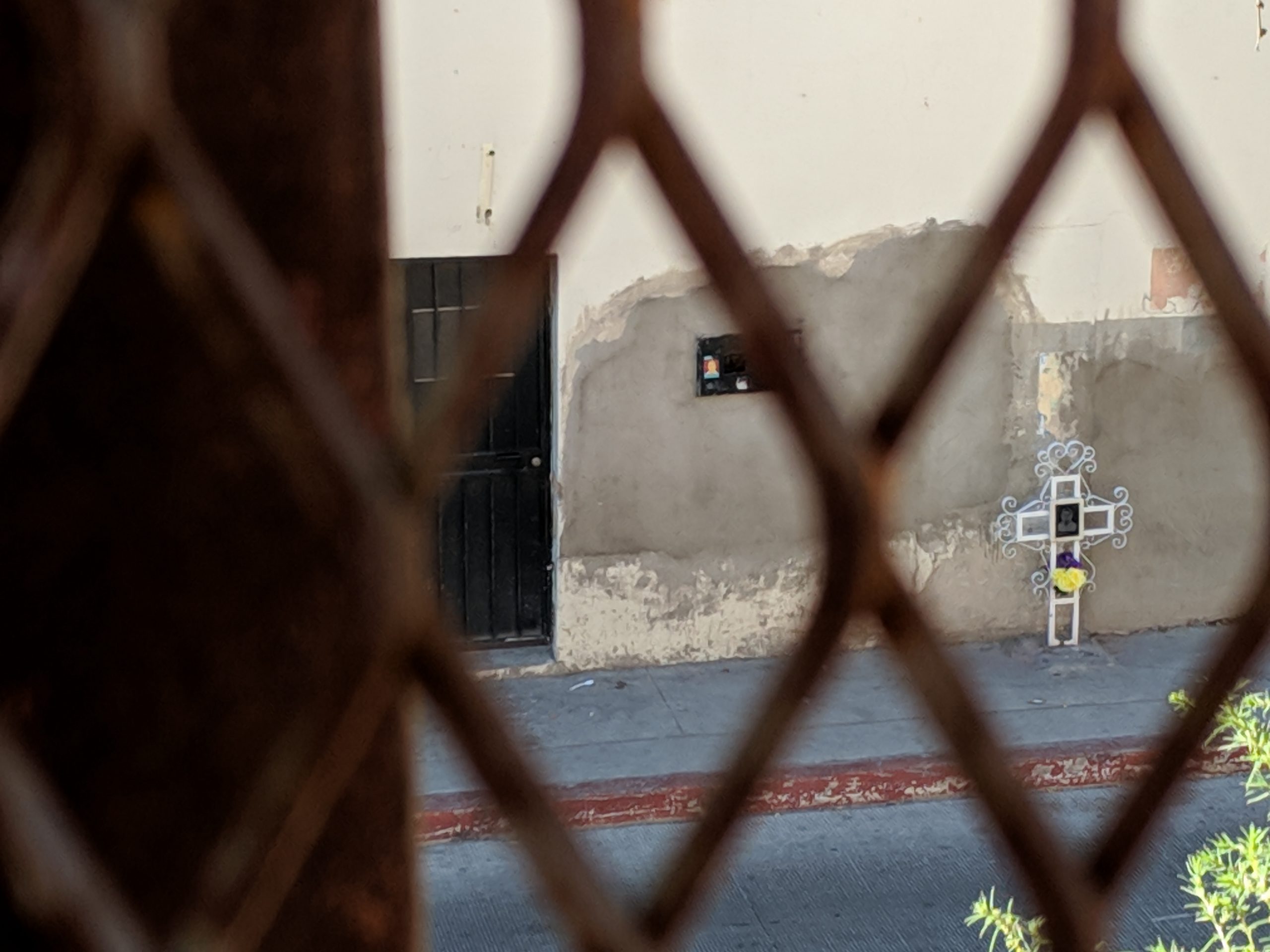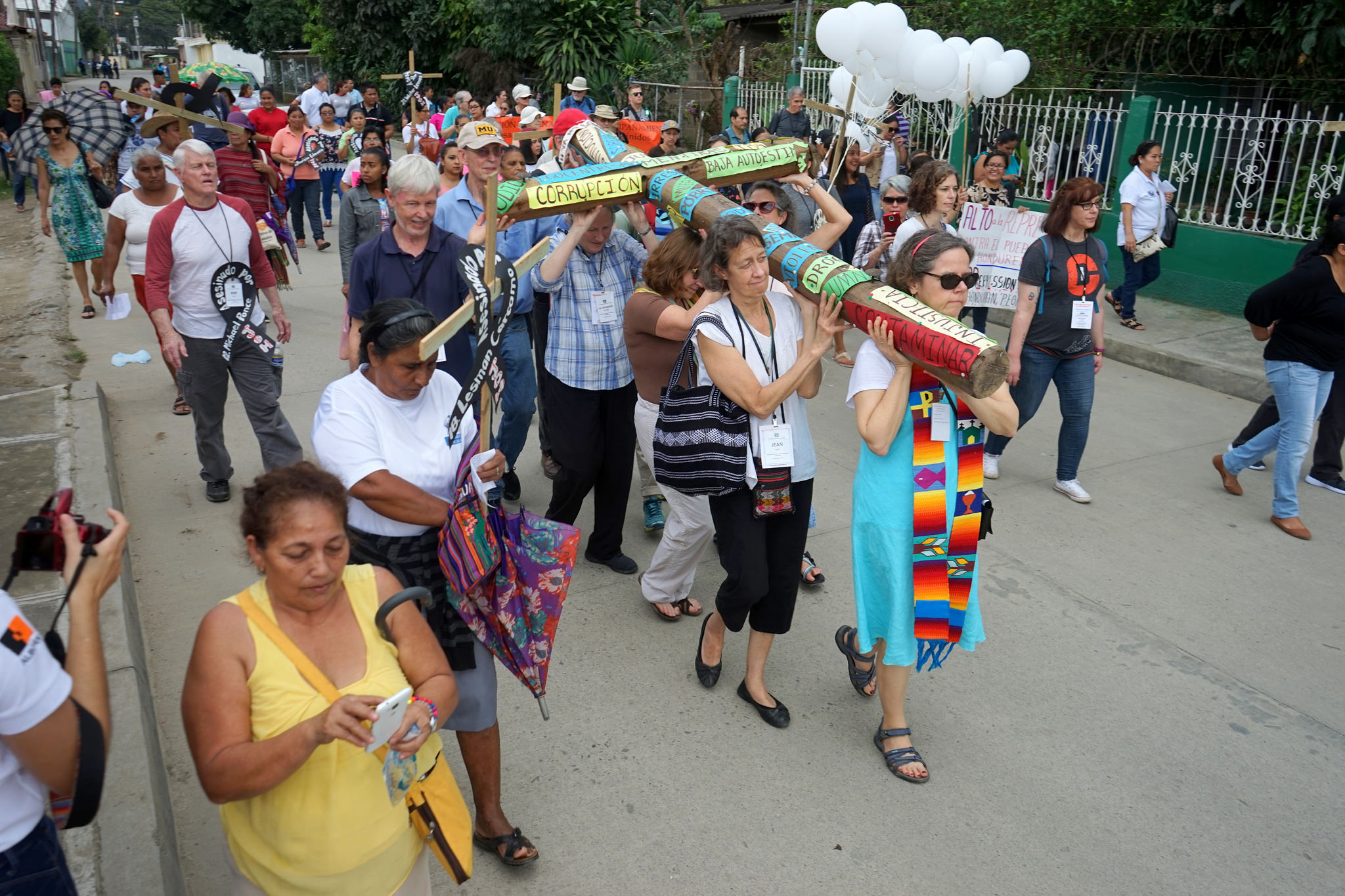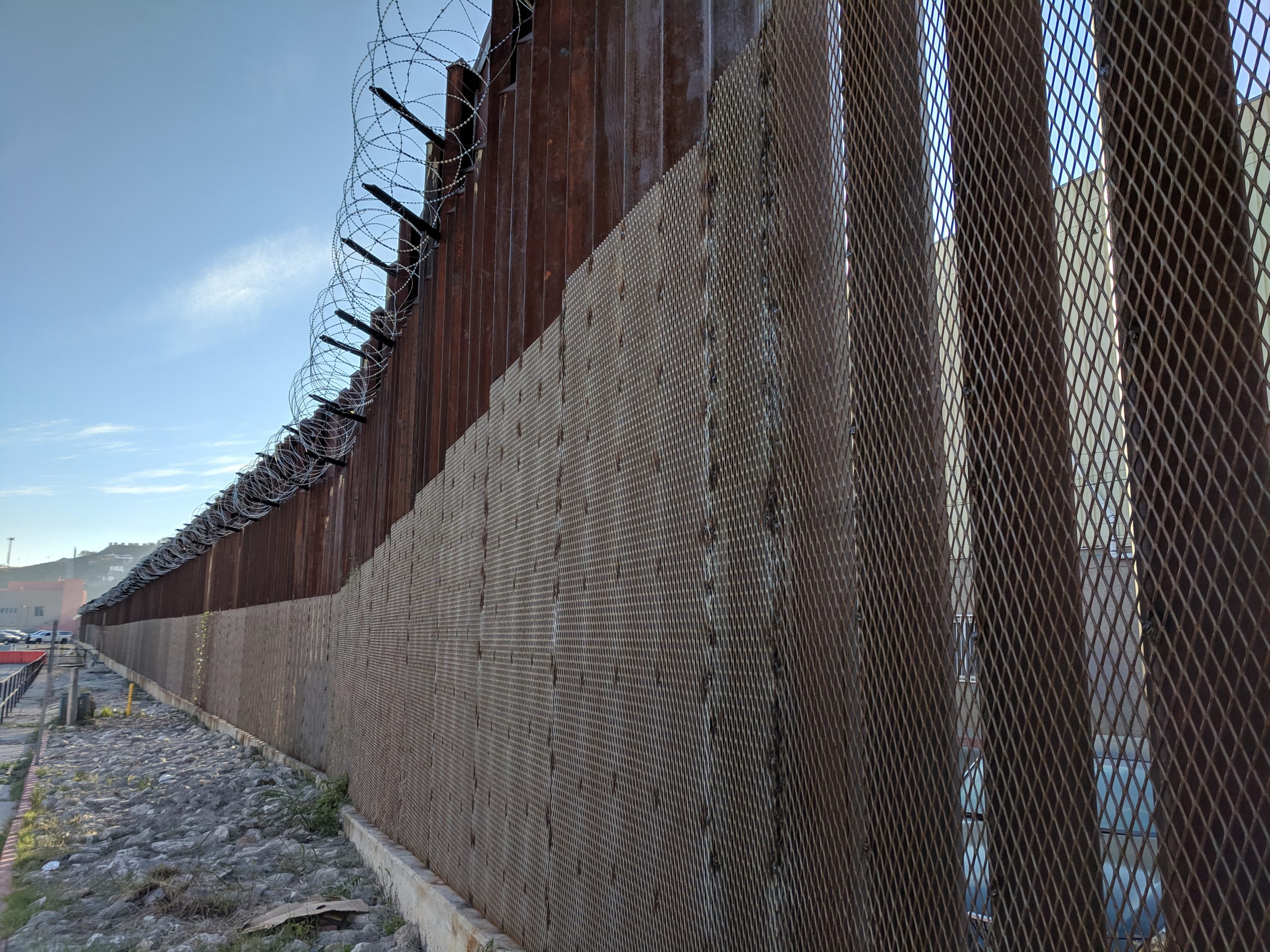By Jean Stokan
The “tale of the border” that we know is not the story told by the U.S. president, who warns of an invasion of criminals, sends heavily armed soldiers to prevent migrants from crossing, and launches tear gas on women and children. Of course, border security is important to prevent dangerous persons from entering, but to distort the reality of the majority crossing the border, and to treat them as criminals, is unconscionable.

Blaming the victims—those fleeing danger—without acknowledging how decades of failed U.S. policies in the Northern Triangle countries (Guatemala, Honduras and El Salvador) have contributed to the conditions of violence and impoverishment from which they are fleeing represents an even greater abdication of moral responsibility on the part of the U.S. government. It is an affront to decency.
Free trade policies such as NAFTA and CAFTA have pushed hundreds of thousands of Mexican and Central American small farmers off their land, destroyed local economies to the benefit of U.S. agribusiness and left these now-desperate migrants unable to feed their children. U.S. military support of repressive regimes in Central America since the 1980s has propped up elites and crushed democratic social movements for change. In Honduras, currently the country with the highest numbers of migrants fleeing spiraling violence, U.S. support of the 2009 coup and subsequent corrupt governments has served to dismantle the rule of law and enabled massive human rights abuses to be committed with near total impunity.
I have led many dozens of human rights delegations to these countries for more than 30 years, and have witnessed and touched the wounds of the most vulnerable victims. Last January, Mercy delegates in Honduras kneeled at the feet of a young father, left paralyzed and brain damaged in a wheelchair after participating in a nonviolent protest; the Honduran military police viciously attacked him and killed dozens others demonstrating electoral fraud—while U.S. financial support for the Honduran security forces continued to flow. We heard testimony of gangs in league with corrupt police coming into neighborhoods, claiming whole rows of houses for gang members, and warning residents they will return to rape or kill their young daughters if they are not out by midnight. I have a 20-year-old daughter. What parent would not flee to protect their children from such brutality?

Now, when these families arrive at the U.S.–Mexico border, fleeing for their lives, the United States meets them with walls, razor-spiked concertina wire and soldiers in riot gear, exclaiming: “How dare you try to come to this country?” Nowhere is there a national examination of conscience on how U.S. government policies historically have contributed to the very conditions that have driven people to leave their homes with nothing but the clothes on their backs.

Resolving the humanitarian crisis at the border will not be easy, and ameliorating the conditions propelling migration north will not be quick. The answer is not to make Mexico keep the asylum-seekers until their claims are processed, nor is it to send more U.S. money for humanitarian projects in Central America while the overall policy context remains so seriously flawed. So fundamental are the changes required that they call for deep reflection on the values guiding how economies are structured, the way developing countries are plundered for their resources, how “U.S. national interest” and human security are defined, and what it means for ALL of God’s people to be treated with dignity.
Sign up here to receive action alerts about Sisters of Mercy advocacy efforts, including calls to Congress to deny funding for the border wall. Visit our website to learn more about advocacy efforts in Honduras.
If you are interested in learning more, click here.